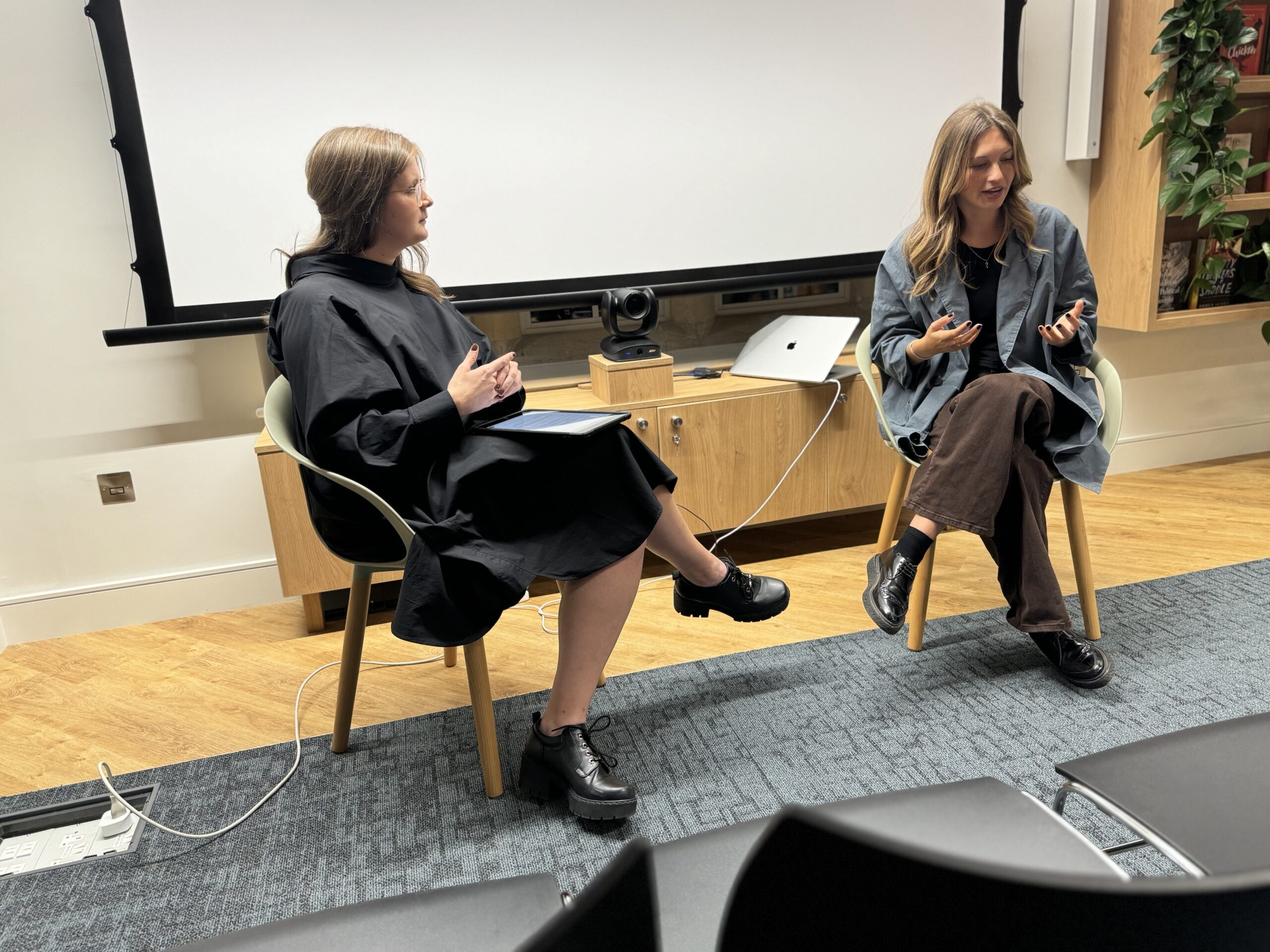
Emily Kassie took part in a Q & A about her award-winning film Sugarcane in Cambridge this week
We are just starting to know the truth. We are at the beginning of understanding what happened
Emily Kassie
Gates Cambridge Scholar Emily Kassie spoke about her award-winning documentary film Sugarcane at a screening in Cambridge this week.
Sugarcane won the US Documentary Directing Award at the Sundance Film Festival earlier this year for its investigation into systematic abuse at an Indian residential school in Canada.
Emily co-directed and co-produced the film which is a searing documentary which exposes a litany of forced family separation and horrendous physical and sexual abuse at a school run by the Catholic Church. It catalogues the impact that has on survivors and descendants, including the film’s co-director Julian BraveNoiseCat.
Sugarcane focuses on the Saint Joseph Mission School, one of 139 residential schools for Indigenous children that operated in Williams Lake, British Columbia. The aim of schools like Saint Joseph’s was the assimilation of young Indigenous people by removing them from their communities and suppressing their traditional languages, cultural practices and identities.
In a Q & A after the screening with Gates Cambridge Scholar Shealynn Hendry [2022], Emily [2016] spoke about how the film came about and some of the many issues it raises.
Emily said she had worked with Julian Brave NoiseCat before. When the news emerged about abuses at the residential school being unearthed, she spoke to him and got in touch with the Indigenous community in Williams Lake. It turned out the school was the one which Julian’s father was born at. Emily’s message came just as community members had agreed that it needed to go public with their stories.
Emily spoke about how she built trust with the community over a sustained period of time. The film took three years in total. She said she was keen to empower the community and create agency through following individuals and documenting events, rather than interviewing people. As she didn’t have time to be embedded for any length of time Emily said building trust through reciprocal actions was important.
That building of trust was important in telling Julian’s story too. Emily didn’t start shooting the relationship between him and his father, which forms one of the central foci of the documentary, until a year in, after he had been encouraged by other members of the community speaking out about what happened at the school and the inter-generational trauma it has caused. Julian’s father was the child of abuse and was the only baby rescued from the school’s incinerator that claimed the lives of several other babies born as the result of abuse. He was found by a visitor to the school who heard what he thought was an animal cry coming from an ice cream carton.
Narrative arc
The film follows Julian and his father as well as Chief Rick Gilbert, Willy Chief Willie Sellars and Charlene Belleau. Rick was a practising Catholic, but had lots of questions about the Church, given that he was the child of a priest who had raped his mother. In the film he travels to Rome to join a group of Indigenous people who have an audience with the Pope. Willy represents the next generation, trying to keep his community alive and be a leader. He organised and led the inquiry into the school’s history. Charlene is an intrepid investigator who has been on the frontline for years, pushing for the story to be told.
Emily was asked how she knew when to finish filming, given the story is ongoing. She says the stories seemed to be moving in one direction, for instance, the internal story between Julian and his father ran parallel to the abuses being revealed in Charlene’s investigation. The film ends with Julian and his father talking to Julian’s grandmother about what happened, but she is too traumatised to speak about it. For Rick the story ended with his return from visiting the Pope. Emily says many of the Indigenous people who witnessed the Pope’s apology [about individuals rather than the system – and in Italian so no-one understood it] felt it was an empty gesture, particularly given the Church has not opened up its records. “It felt like a circus,” said Emily. Nevertheless, Rick continued to practise as a Catholic until his recent death.
For Charlene the investigation continues. Emily said what the film portrays is just the start of the road to reconciliation. “We are just starting to know the truth. We are at the beginning of understanding what happened,” she stated, adding that there are hundreds of similar schools in Canada and the US. It is too early therefore for apologies until the full extent of what happened is known, she said. At one point, the film depicts a member of the Catholic Church putting the abuse down to ‘mental health’ problems in the past and saying he hopes there can be mutual forgiveness.
Emily said the film had been shown to the community in Williams Lake and that that experience was extremely powerful and profound. It was very well received. Nevertheless, she says she feels a sense of guilt because she has finished filming, although she is now promoting the film across the world. She doesn’t know how to continue the relationship with the community, although she says she is sure it will inform her whole career.
*Sugarcane will be streamed on Disney + soon. It is being screened across the UK in the next few days, including at the Curzon Mayfair in London today. Find out more here.












